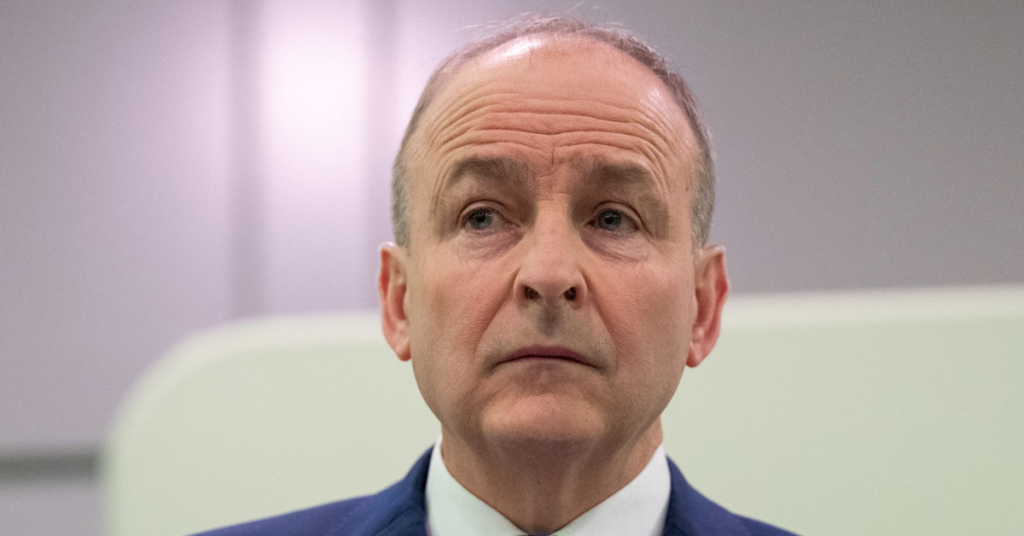On Monday EU leaders met with UK prime minister Keir Starmer and NATO secretary-general Mark Rutte for an informal summit about European defence. At the meeting a letter signed by 19 EU leaders (not including Ireland) was tabled, stressing the need for Europe to rapidly militarise, with the European Investment Bank (EIB) to lead the charge.
The EIB is the investment bank of the EU. It functions primarily by issuing bonds to private investors to raise money for various EU projects. While it is often portrayed as functioning as some sort of humanitarian organisation – often in relation to its climate projects – one of its ‘eight core strategic priorities’ is “security and defence”.
In 2022 the EIB launched the ‘Strategic European Security Initiative’ to increase the bank’s involvement in the defence industry. As part of the initiative, €8 billion was allocated for defence between 2022 and 2027, and a dedicated EIB defence office to consult with defence companies and coordinate defence spending was established. Memorandums of cooperation were also signed with organisations like NATO.
In 2025 alone €2 billion is set to be invested in defence (out of a total of €95 billion). The EIB has also recently dropped requirements that dual-use technology it invests in derive 50% or more of expected revenue from civilian use.
The measures proposed in the letter aim to push this investment in defence even further. It calls for the sale of defence bonds to raise money for arms, a general ramping up of defence investment and an end to EIB requirements that projects be dual-use. As we can see from previous developments like the Strategic European Security Initiative, the measures suggested by the letter do not constitute a break with EIB policy but simply a scaling up.
These measures will almost certainly be passed as the signatories form a majority on the EIB’s governing bodies. The upcoming EU white paper on defence is also likely to suggest even more radical measures, such as potentially excluding member’s defence spending from EU budgetary rules.
Although Ireland did not sign the letter, Micheál Martin said that he would ‘not be opposed’ to further EIB investment in defence and that Ireland ‘would not stand in the way of other member states wanting to strengthen their defence and security’.
What this type of language obscures is that it is not just a matter of Ireland not stopping other EU countries from investing in defence, but of a bank, of which Ireland is a shareholder, using Irish state capital (€1,639,379,073 total subscribed capital as of 2020) to back bonds sales for arms purchases. Martin even went as far as to suggest that Ireland may undertake joint borrowing with other member states in the future to purchase arms.
These developments show the stupidity of the reformist idea that Ireland can be a part of the European Union in a purely economic capacity, or even that the EU is a purely ‘economic alliance’. Even EU politicians themselves have given up on trying to push this narrative, now speaking openly of impending war between the EU and Russia/China. Aligning with an imperialist bloc like the EU necessarily entails militarising in order to enforce the economic interests of that bloc.
On the other hand we must not fall into incorrect ideas about Ireland unwillingly being coerced into militarisation. While Irish bourgeois politicians speak of the EU’s intolerance of Ireland’s neutrality, we should not think that the Irish bourgeoisie are being ‘forced’ by the EU to militarise.
It is very much in their interests, as seen by their fervent desire to get rid of the triple lock. Even if Ireland were to formally leave the EU under a bourgeois government, we would still certainly see a drive for militarisation alongside the EU. This can be seen with the UK which despite having left the EU, is still likely to be included in arms purchasing through the EIB!
Militarisation and the threat of imperialist war is one of the biggest issues facing Irish youth today. A major world war between NATO and Russia and/or China appears to be an inevitability at this point. This would entail the deaths of millions of working class youth and potentially even the end of human civilisation if such a war became nuclear.
Only in this context can we understand the ramping up of European militarisation, in which the Irish bourgeoisie is happy to follow along. The continued existence of capitalism presents a threat to all life on earth, making the fight for socialism a fight for life itself.

